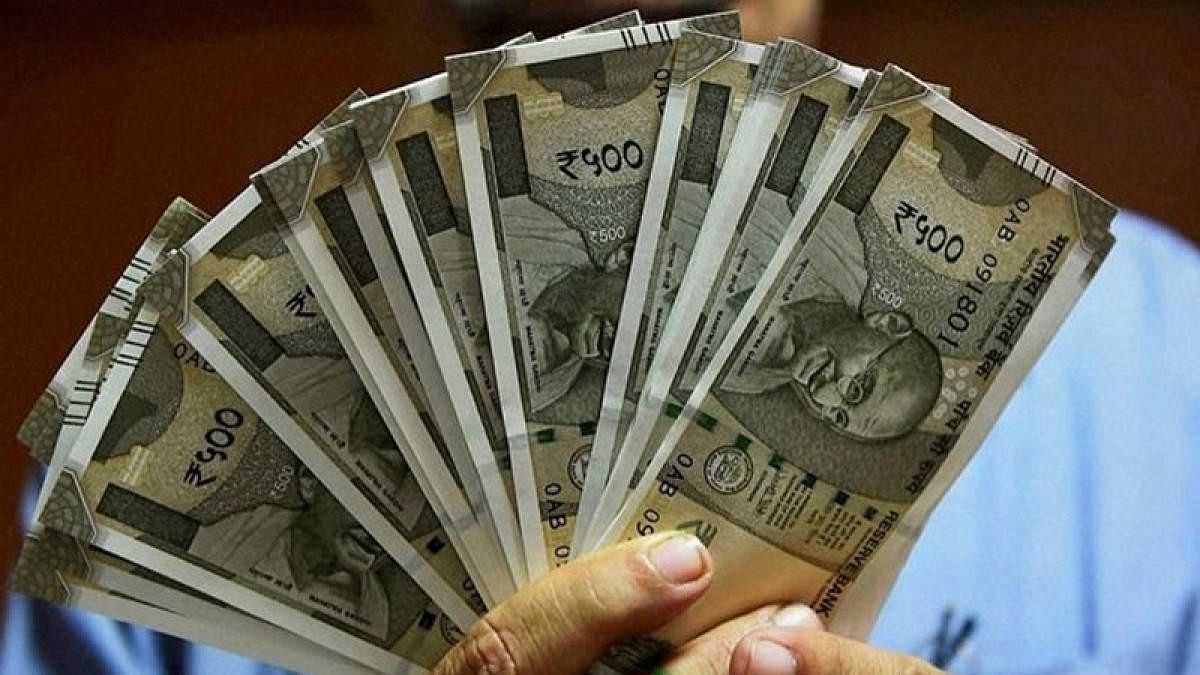
Rs 500 notes
Credit: PTI Photo
During an interaction organised by the Confederation of Indian Industry (CII) last month, Chief Economic Advisor V Anantha Nageswaran dismissed the idea of Universal Basic Income (UBI) in India. He expressed concerns that UBI might create create ground for “perverse incentives,” discouraging people from actively seeking income-generating opportunities. As a result, he believes that UBI should not be priority in the near future.
Drawing comparisons with developed countries, the current CEA highlights that these nations have limited room for increasing economic growth and creating income generating opportunities. Consequently, their governments have established social security systems, including regular income support for those without jobs or insufficient means to lead a dignified lives.
However, in contrast to developed countries, developing nations like India possess significant potential to accelerate economic growth, foster employment, and generate income opportunities. Thus, providing a social security net like regular income support is deemed unnecessary, all the more because it may discourage people from making effort (read: ‘perverse incentive’ to use CEA’s jargon). But, this is half truth.
Admittedly, India has huge scope for boosting growth, employment, and income. Nevertheless, it doesn’t imply that there will not be any unemployed or poor left. Despite rapid economic growth, a large number of people remain unemployed and impoverished. Hence, the necessity for state assistance cannot be wished away.
Bot the central and state governments recognise this pressing need. However, instead of implementing UBI, they offer goods and services at subsidised prices or even free. Certain schemes provide financial assistance, like the annual payment of Rs 6000 to farmers under PM–KISAN programme. However, this is merely an adjunct intended to help them buy agricultural inputs, not UBI itself.
The administration of these schemes is leading to substantial economic losses. Consider the food subsidy under the National Food Security Act (NFSA), which amounted to Rs 287,000 crore during 2022-23. Beneficiaries get food at extremely low prices--Rs 1/2/3 per kg for coarse cereals, wheat and rice (currently free in 2023). It is given to a staggering 820 million, far exceeding the number of genuinely impoverished individuals.
The scheme is prone to massive leakages. With food available at Rs 1/2/3 per kg (or even free) against higher market prices, diversion is inevitable. Further, reimbursing state agencies for handling costs based on ‘actual’ expenditures opens door to corruption and inefficiencies.
Similarly, the fertilizer subsidy (Rs 255,000 crore spent during 2022-23) benefits not just poor farmers but also affluent ones.
As per the 2015-16 Economic Survey, 24 per cent of fertilizer subsidy goes to large/rich farmers. Besides, 41 per cent of the subsidy is diverted to chemical factories and smuggled to neighbouring countries. The system is also prone to inefficiencies and inflated payments to manufacturers on the one hand and excessive use of urea by the farmers on the other.
Furthermore, heavily subsidised electricity tariffs (free in some states) for farmers result in excessive water usage and groundwater depletion. Although the Centre subsidizes credit availability, a considerable share is cornered by large farmers, leaving small and marginal farmers at a disadvantage.
In addition to the above, numerous schemes at both the central and state levels disperse benefits widely. For instance, free bus rides for women in Delhi and Karnataka may yield electoral gains but harm the economy.
Given these circumstances, there is a compelling case for disbanding all existing forms of support and replace them by what may be termed as ‘Unconditional Basic Income’ or the UBI system.
The primary focus of UBI should be on people below the poverty line. There are multiple estimates of the number of poor people in India. To illustrate the point, let us take the number to be 250 million.
The appropriate level of UBI can be determined keeping in mind the budget constraints. The Centre spends a total of Rs 562,000 crore on subsidies (2022-23). If, only it disbands these subsidies and redirects the money to give cash/income support under the UBI scheme, each of the 50 million poor families (assuming 5 persons per family) can receive Rs 112,400 per annum or around Rs 9,400 a month.
The support for beneficiaries once identified must not be perpetual. Regular monitoring is essential. Those crossing the poverty line should be removed from the programme, while those who fall into poverty should be included. Ultimately, the government should endeavour to ensure that there are ample opportunities for everyone to increase their incomes and none remains poor. In the long-run, it should ensure that people don’t need UBI.
(The writer is a policy analyst)